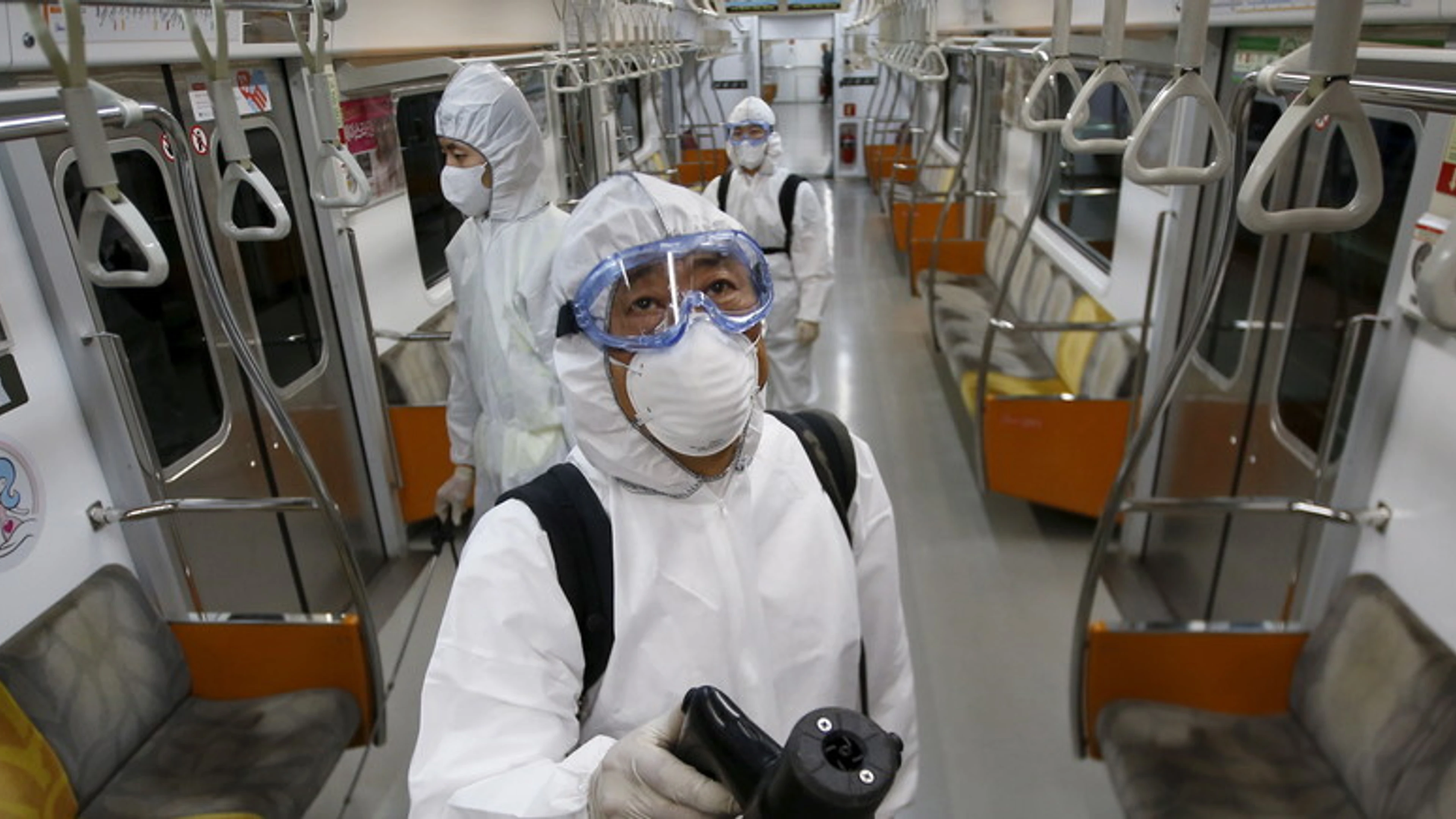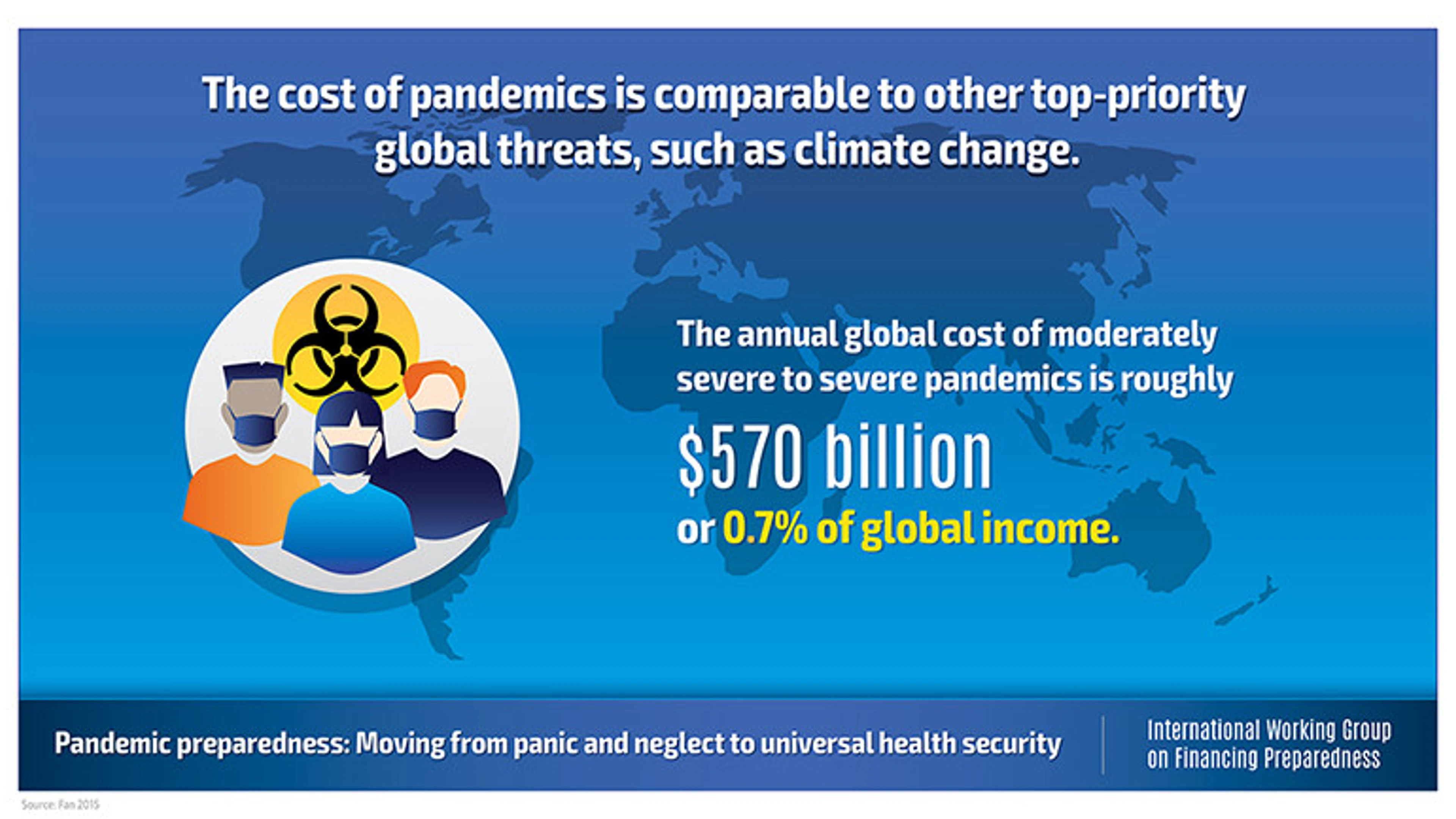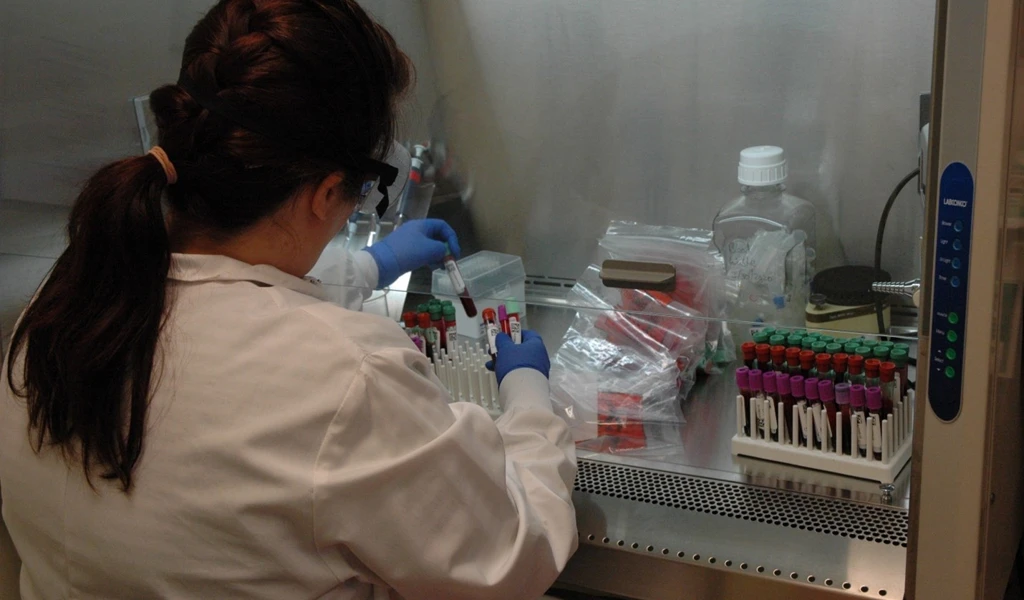The global economy is woefully unprepared for biological threats. This is what we need to do

If you found yourself in Liverpool in the late 18th century it wouldn't have been entirely unexpected to witness a fire, threatening stocks of tobacco, sugar and cotton that arrived daily and were stored in hurriedly built warehouses, sheds and storage yards.
Still, you might be surprised to observe two separate troops responding to the emergency simultaneously. Naturally, one would be the fire brigade itself. More notably, though, the other group rushing on to the scene would be a salvage corps, dedicated to mitigating the effects of the fire and of fire-fighting activities, primarily to salvage both premises and goods.
Over time, the fire brigade came to prioritize efforts to prevent unnecessary loss and damage, eliminating the need for a separate salvage corps. Today, loss control and salvage are essential functions of a modern fire service.
Upon your return to 2019, it is likewise not unexpected to observe an infectious disease outbreak on an international scale. The frequency of disease outbreaks has been rising steadily. Each month, the World Health Organization (WHO) tracks 7,000 new signals of potential outbreaks, generating 300 follow-ups, 30 investigations, and 10 full risk assessments. Last June, there were for the first time ever outbreaks of six of the eight categories of disease in the WHO's "priority diseases" list.
Here, you might notice parallels to the fire response in Liverpool. While the world remains badly under-prepared for even modest biological threats, the WHO and others are taking meaningful steps to improve capacity to mitigate risk and impact of outbreaks. Recent years have seen the establishment of a Global Preparedness Monitoring Board, WHO's Contingency Fund for Emergencies, the World Bank's Pandemic Emergency Financing Facility and the creation of the Coalition for Epidemic Preparedness Innovations. Also, for the first time, an experimental Ebola vaccine is being used to contain spread of the disease in DRC, saving countless lives.
An economic impact on a par with climate change
However, although the world's "fire brigade for epidemics" is surely improving, progress risks being undermined when insufficient attention is given to minimizing broader societal and economic disruptions, similar to the way a modern fire brigade prioritizes salvaging structures and protecting irreplaceable personal belongings at a fire site.
Indeed, disease outbreaks cause massive economic damage. All told, the annual global cost of moderately severe to severe pandemics is roughly $570 billion, or 0.7% of global income — a cost in the same order of magnitude as climate change. And, remarkably, estimates suggest that only 39% of the economic losses from outbreaks are associated with direct effects on infected individuals. Rather, the bulk of the costs results from healthy people's change of behavior as they seek to avoid infection, representing ample opportunity for mitigation.

The annual global cost of moderately severe to severe pandemics is roughly $570 billion, or 0.7% of global income
In fact, while medical and public health advances have helped us to contain the morbidity and mortality effect of epidemics, our collective vulnerability to the societal and economic impacts of infectious disease crises appears to be increasing.
For example, the outbreak of SARS in 2003 caused more than $50 billion worth of damage to the global economy, having infected about 8,000 people and having caused fewer than 800 deaths. Likewise, during the 2015 South Korean MERS outbreak, though less than 200 individuals were infected and only 38 died, nearly 17,000 people were quarantined at an estimated cost of $8.5 billion. Incredibly, the cost of the 2014-2015 Ebola outbreak to three affected west African countries is estimated to be $53 billion.
While large, estimates of macroeconomic impact risk disguising true community impact. For example, the 2009 H1N1 pandemic had an estimated $5 billion impact on the Mexican tourism economy. At the community level, in Cancun, for example, this translated to cruise ships cancelling ports of call and 22 hotels temporarily suspending operations, leading to more than 10,000 waiters, cooks, maids and other hotel employees being furloughed from their jobs — all despite the fact that most H1N1 cases were concentrated in Mexico City and surrounding suburbs, far from tourist resorts on the Caribbean and Pacific coasts.
Similarly, during the 2014-2015 Ebola response in west Africa, only two airlines(Brussels Airlines and Royal Air Maroc) continued serving Sierra Leone, Guinea and Liberia, even though limiting flights to the region both exacerbated economic impact and risked worsening the Ebola crisis by restricting ability to get aid to the region.
To what degree can epidemic response be considered successful when this kind of avoidable economic impact goes uncontained or is exacerbated? As one firefighter asks: "They will remember this day for the remainder of their lives. Will you have them remember the day that thousands of dollars of unnecessary damage was inflicted on their home without cause?"
The International Health Regulations (IHR), which unite 196 countries across the globe in a legal commitment to prevent and respond to acute public health risks, prioritize both minimizing public health risks as well as avoiding unnecessary interference with international traffic and trade. Nothing is more important than averting public health risks, but additional attention on minimizing the economic impact of epidemics is not only consistent with the IHR, but also represents a synergistic opportunity to grow engagement towards building core capacities to prevent, detect, and respond to outbreaks generally.
The Salvage Corps came to exist in Liverpool because the city was experiencing high levels of fire loss despite having efficient fire brigades. With nearly 200 epidemic events per year, failure of our "fire brigade for epidemics" to avoid generally predictable and avoidable economic costs is both at our own peril and a missed opportunity.
This article first appeared on the World Economic Forum blog on 5 March 2019.
The author, Ryan Morhard is Project Lead, Global Health and Healthcare Industries, World Economic Forum Geneva
The views expressed in this article are those of the author alone and not the World Economic Forum.
Hero Image: REUTERS/Kim Hong-Ji


